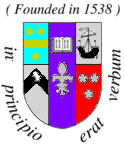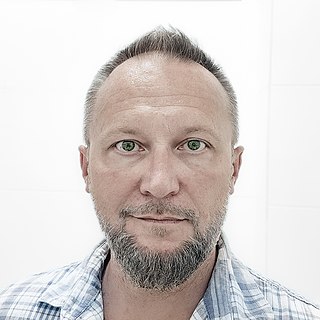Related Research Articles
Robert A. Freitas Jr. is an American nanotechnologist.

Torrance is a city in the Los Angeles metropolitan area located in Los Angeles County, California, United States. The city is part of what is known as the South Bay region of the metropolitan area. Torrance has 1.5 miles (2.4 km) of beachfront on the Pacific Ocean and a moderate year-round climate with an average rainfall of 12 inches (300 mm) per year. Torrance was incorporated in 1921, and at the 2020 census had a population of 147,067 residents. The city has 30 parks. The city consistently ranks among the safest cities in Los Angeles County. Torrance is also the birthplace of the American Youth Soccer Organization (AYSO).
The Association of American Law Schools (AALS), formed in 1900, is a non-profit organization of 176 law schools in the United States. An additional 19 schools pay a fee to receive services but are not members. AALS incorporated as a 501(c)(3) non-profit educational organization in 1971. The association is a member of both the American Council on Education and the American Council of Learned Societies its headquarters are in Washington, D.C.

Surrogacy is an arrangement, often supported by a legal agreement, whereby a woman agrees to delivery/labour on behalf of another couple or person, who will become the child's parent(s) after birth. People may seek a surrogacy arrangement when a couple do not wish to carry a pregnancy themselves, when pregnancy is medically impossible, when pregnancy risks are dangerous for the intended mother, or when a single man or a male couple wish to have a child.

A designer baby is a baby whose genetic makeup has been selected or altered, often to exclude a particular gene or to remove genes associated with disease. This process usually involves analysing a wide range of human embryos to identify genes associated with particular diseases and characteristics, and selecting embryos that have the desired genetic makeup; a process known as preimplantation genetic diagnosis. Screening for single genes is commonly practiced, and polygenic screening is offered by a few companies. Other methods by which a baby's genetic information can be altered involve directly editing the genome before birth, which is not routinely performed and only one instance of this is known to have occurred as of 2019, where Chinese twins Lulu and Nana were edited as embryos, causing widespread criticism.

St Mary's College, founded as New College or College of the Assumption of the Blessed Virgin Mary, is the home of the Faculty and School of Divinity within the University of St Andrews, in Fife, Scotland.

George McDonald Church is an American geneticist, molecular engineer, chemist, a serial entrepreneur, and a pioneer in personal genomics and synthetic biology. He is the Robert Winthrop Professor of Genetics at Harvard Medical School, Professor of Health Sciences and Technology at Harvard University and Massachusetts Institute of Technology, and a founding member of the Wyss Institute for Biologically Inspired Engineering at Harvard. Through his Harvard lab Church has co-founded around 50 biotech companies pushing the boundaries of innovation in the world of life sciences and making his lab as a hotbed of biotech startup activity in Boston. In 2018, the Church lab at Harvard made a record by spinning off 16 biotech companies in one year. The Church lab works on research projects that are distributed in diverse areas of modern biology like developmental biology, neurobiology, info processing, medical genetics, genomics, gene therapy, diagnostics, chemistry & bioengineering, space biology & space genetics, and ecosystem. Research and technology developments at the Church lab have impacted or made direct contributions to nearly all "next-generation sequencing (NGS)" methods and companies. In 2017, Time magazine listed him in Time 100, the list of 100 most influential people in the world. In 2022, he was featured among the most influential people in biopharma by Fierce Pharma, and was listed among the top 8 famous geneticists of all time in human history. As of January 2023, Church serves as a member of the Bulletin of the Atomic Scientists' Board of Sponsors, established by Albert Einstein.
The DePaul University College of Law is the professional graduate law school of DePaul University in Chicago. The College of Law’s facilities encompass nine floors across two buildings, with features such as the Vincent G. Rinn Law Library and Leonard M. Ring Courtroom. The law school is located within two blocks of state and federal courts, as well as numerous law firms, corporations and government agencies.

Pauline Newman is a United States circuit judge of the United States Court of Appeals for the Federal Circuit. She has been called "the Federal Circuit's most prolific dissenter" and "the greatest ally to inventors with respect to [calling out] the ignorance of the CAFC, district courts, and at times even the Supreme Court". Chief Judge Kimberly A. Moore commented of Newman that "many of her dissents have later gone on to become the law—either the en banc law from our court or spoken on high from the Supremes".

The legal aspects of surrogacy in any particular jurisdiction tend to hinge on a few central questions:
William M. "Bill" Tomlinson is a professor of informatics at the University of California, Irvine, and a researcher in the California Institute for Telecommunications and Information Technology. He studies the fields of environmental informatics, human-computer interaction, multi-agent systems and computer-supported learning. His book Greening through IT examines the ways in which information technology can help people think and act on the broad scales of time, space, and complexity necessary for us to address the world's current environmental issues. In addition, he has authored dozens of papers across a range of journals and conferences in computing, the learning sciences, and the law. His work has been reviewed by The Wall Street Journal, The Washington Post, the Los Angeles Times, Wired.com, Scientific American Frontiers, CNN, and the BBC. In 2007, he received an NSF CAREER award, and in 2008 he was selected as a Sloan Research Fellow. He holds an AB in biology from Harvard College, an MFA in experimental animation from CalArts, and SM and PhD degrees from the MIT Media Lab.

Jennifer Anne Doudna is an American biochemist who has done pioneering work in CRISPR gene editing, and made other fundamental contributions in biochemistry and genetics. Doudna was one of the first women to share a Nobel in the sciences. She received the 2020 Nobel Prize in Chemistry, with Emmanuelle Charpentier, "for the development of a method for genome editing." She is the Li Ka Shing Chancellor's Chair Professor in the Department of Chemistry and the Department of Molecular and Cell Biology at the University of California, Berkeley. She has been an investigator with the Howard Hughes Medical Institute since 1997.
Yield10 Bioscience is a company developing new technologies to achieve improvements in crop yield to enhance global food security.
The International Society for Stem Cell Research (ISSCR) is an independent 501(c)(3) nonprofit organization based in Skokie, Illinois, United States. The organization's mission is to promote excellence in stem cell science and applications to human health.
WikiConference North America, formerly WikiConference USA, is an annual conference organized by the Wikipedia community in North America. The first two events were held at New York Law School and Washington, D.C.'s National Archives Building in 2014 and 2015, respectively. The third annual conference, rebranded WikiConference North America, was held at San Diego's Central Public Library in 2016, with a pre-conference day at Balboa Park. WikiConference North America 2017 was held in Montreal in 2017, as a pre-conference to Wikimania. The 2018 and 2019 events were held in Columbus, Ohio and Cambridge, Massachusetts, respectively.

Henry T. "Hank" Greely is an American lawyer, a leading authority on the ethical, legal, and social implications of new biomedical technologies, particularly those related to genetics, assisted reproduction, neuroscience and stem cell research.
Dulal Panda is an Indian cell biologist and the chair professor at the department of biosciences and bioengineering of the Indian Institute of Technology, Bombay. Presently, he is the Director of NIPER, SAS Nagar (Mohali). Known for his studies on microtubule dynamics and FtsZ assembly dynamics, Panda is an elected fellow of the Indian Academy of Sciences and the National Academy of Sciences, India. The Department of Biotechnology of the Government of India awarded him the National Bioscience Award for Career Development, one of the highest Indian science awards, for his contributions to biosciences in 2005.

Rachel Elizabeth Haurwitz is an American biochemist and structural biologist. She is the co-founder, chief executive officer, and president of Caribou Biosciences, a genome editing company.

George Burba is an American bio-atmospheric scientist, author, and inventor.
The School of Life Sciences, Kannur University hosts two departments, Department of Biotechnology and Microbiology, which was established in 2000 for conducting master's degree (M.Sc) courses and research (Ph.D) in Biotechnology and Microbiology. An Inter University Centre for Bioscience was also established at the department by the Higher Education Department, Government of Kerala, to be a global center of excellence for research in biological sciences. Master's degree course in computational biology was introduced in 2020.
References
- ↑ Torrance, Andrew W. (2010). "The Evolution and Development of Biolaw". Gruter Institute Squaw Valley Conference 2010: Law, Institutions & Human Behavior.
- ↑ AALS. "Section on Biolaw" . Retrieved 10 May 2023.
- ↑ Regalado, Antonio (2019). "Don't change your DNA at home, says America's first CRISPR law". MIT Technology Review. Retrieved 10 May 2023.
- ↑ Maldonado, Alexis Jimenez. "An Interview with Elizabeth Chloe Romanis, Fellow-in-Residence at the Edmond & Lily Safra Center for Ethics and the Petrie-Flom Center for Bioethics" . Retrieved 11 May 2023.
- ↑ Cauterucci, Christina (2023). "The Womb Is a Miracle, and a Mystery". New York Times. Retrieved 11 May 2023.
- ↑ Hendy, Eloise (2023). "'You always feel like you've done something wrong': Why UK surrogacy laws need a 'real overhaul'". Independent. Retrieved 11 May 2023.
- ↑ Reynolds, Matt (2022). "You're (Maybe) Gonna Need a Patent for That Woolly Mammoth". Wired. Retrieved 10 May 2023.